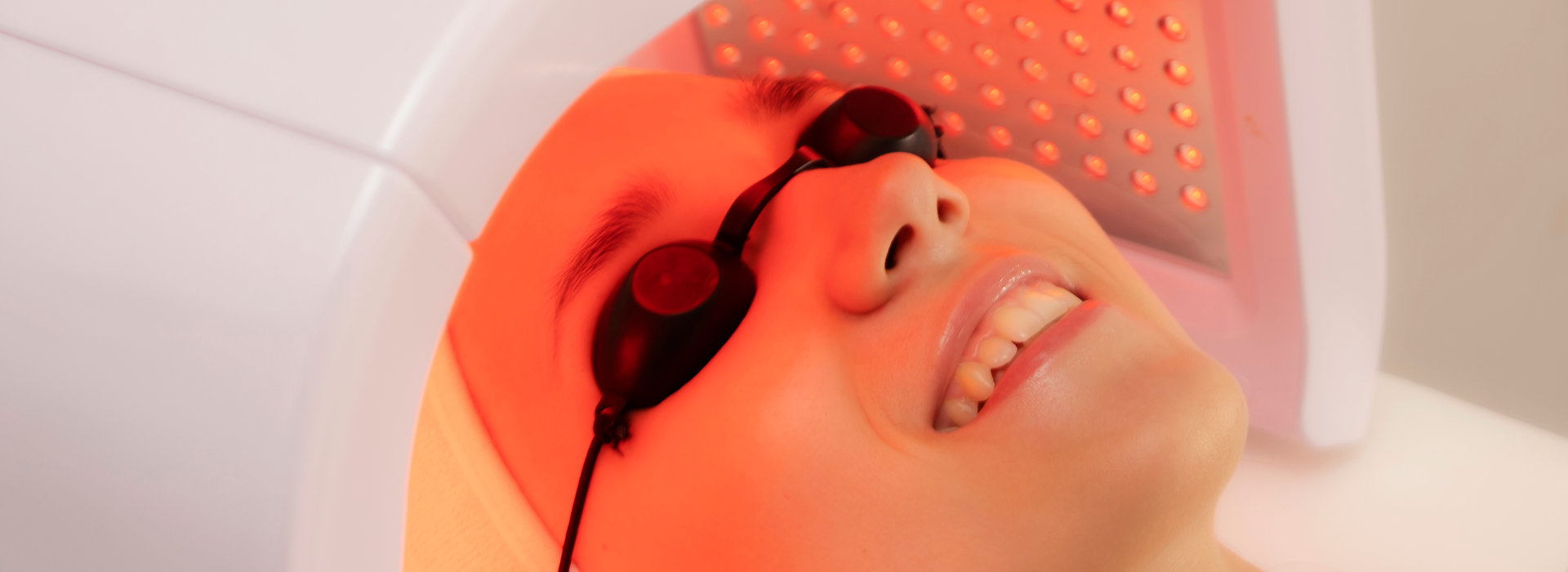Understanding photodynamic therapy and its benefits
The Houston Dermatology Associates team regularly sees patients with certain skin concerns, including acne, precancerous lesions (actinic keratosis) and skin cancer. Talking about treatment options may seem scary for those with a definitive diagnosis of precancers or skin cancer. Our board-certified dermatologists can walk patients through the various solutions available, including the possibility of treating these lesions with PDT or “photodynamic therapy.”
What is photodynamic therapy?
Photodynamic therapy, also referred to by the acronym PDT, is a treatment that combines a special drug called a photosensitizer and a particular type of light. The drug only becomes active when exposed to a specific light wavelength. Once activated, the photosensitizer attacks and destroys targeted cells. PDT is primarily used to treat precancerous cells and certain types of cancer but can also be effective for other conditions such as acne.
How does PDT work?
During PDT, the photosensitizing agent is first applied topically. It then collects in abnormal cells, typically the precancerous or cancerous ones, within the targeted area. Next, an external light source is placed on the area, which activates the drug, causing it to produce a form of oxygen that destroys the targeted cells. Healthy cells, which do not absorb the drug, are usually not affected by light activation. This blue light treatment for precancers and skin cancers is safe and effective.
What are some potential side effects and risks associated with PDT?
As with any treatment, there are potential side effects and risks associated with PDT. Therapy side effects may include temporary swelling or redness at the treatment site, and rarely blistering of the skin. In rare cases, PDT may also cause some superficial damage to healthy skin surrounding the targeted area. It is essential to discuss all possible risks and side effects with your dermatologist before undergoing PDT.
Overall, PDT can be an effective treatment option for precancerous lesions, certain types of skin cancer and other skin conditions. It is important to discuss any questions or concerns at an initial consultation with our team at Houston Dermatology Associates before undergoing the procedure. You can book a consultation and initial evaluation with our providers by calling (713) 790-0058. The office is in Houston, TX, at 6560 Fannin, Suite #1720.








